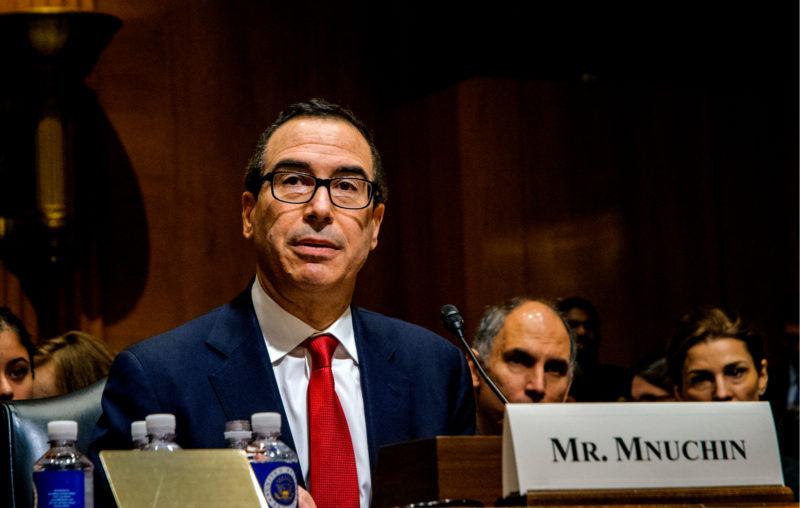Government Can’t Police Itself

I recently attended a Senate hearing about the policies implemented in the CARES Act. Witnesses and members of Congress spent a lot of time praising the value of government oversight and affirming their desire for more transparency.
I, too, am a big fan of transparency and oversight. Also, there is nothing I would love more than to see politicians and bureaucrats held accountable for their actions. But I have long stopped believing that more and better data about government programs and politicians’ actions inevitably lead to smaller, or even better, government.
First, let me state the obvious: no matter the government program – whether for housing, education, national defense, whatever – carelessness and dishonesty with taxpayer money are commonplace. Each scandal differs from all the others on its surface, but at their core, all scandals are the same.
If you look closely you will find that for each of these scandals (or the ones we know about), one or more of these behaviors and beliefs are in play: lack of humility on the part of those involved with the programs they design; strong ties to special interest groups; intense focus on the next election and those who finance them; and a profound lack of transparency and accountability.
This reality was brought home to me over the weekend as I watched The Report on Amazon Prime. It is a film about the enhanced interrogation techniques (aka, torture) used during the George W. Bush administration. In particular, the movie shows the work of a diligent Senate staffer who exposed, among other things, that while CIA agents had known for decades that these techniques were not effective at providing reliable intel, they used 9/11 as an excuse to implement them. The movie exposes how CIA consultants with no experience in the field made millions selling these ineffective techniques, and how these torture peddlers were enabled by bureaucrats across multiple agencies, and administrations (the Obama administration did ultimately do the right thing but not without some serious political pressure).
One of the central messages of the movie is that this program operated in the shadows, and that only by shining a light on the system that enabled it would we Americans learn something – hopefully to prevent such hideous activities in the future. Yet I saw in the movie something else. I saw how each time some program runs off the rails, we learn nothing. People continue to trust the government. No one is held accountable. If fact, after the torture report was published, no one was fired.
There’s more: this movie made it obvious that when you are in government or its peripheries and want to do something that people would never tolerate during normal times, wait for a crisis and plenty of bureaucrats and lawyers will come to your aid to do what you’ve wanted to do. Think about the adoption of the PATRIOT Act when fear of terrorism was at a peak, and the lockdown more recently with today’s fevered fear of COVID. These government actions were written up in plans collecting dust on government officials’ shelves until a crisis happened.
Second, I have testified in dozens of government oversight hearings. Capitol Hill features hundreds of such hearings each year. For what? As far as I can tell, these hearings are mostly an exercise in getting soundbites for press releases to be issued by the members of Congress who attend them. Even when all of the witnesses agree that a program is wasteful or not performing as expected, appropriators then turn around and fund the program.
The hearing I attended last week was no different. We heard convincing testimony about the many problems uncovered by those who oversaw the spending of the Department of Treasury’s $700 billion Troubled Asset Relief Program (TARP) funds, a program implemented during the Great Recession. We also learned that knowledge about the lack of oversight of TARP was not put to any good use. We get only the familiar refrain: more oversight.
I’m sorry, but I don’t buy it. For one thing, the way traditional oversight works is that an agency Inspector General and his staff will look back at what a program was doing and then they report to Congress. But that’s usually where it ends. The IG has no power to end the program or to reform it, and Congress doesn’t have the willpower to do anything about it. The same is true of special committees that are formed to look at a particular program or a government failure like 9/11. It is also true of government reports that are written about an agency’s performances. I have read many such reports, which often are excellent, but their exposures of problems have no consequences.
In that vein, let me remind you that every few years, the Government Accountability Office publishes a report about improper payments. Every time, the list of programs making improper payments includes the same cast of characters. Each time, these programs show billions of dollars of improper payments. Then nothing happens. The truth of the matter is that even when a department or an agency says it doesn’t need money for a particular program, Congress goes ahead and funds it anyway because, despite being useful to the agency and its ostensible mission, it can be said to create or save jobs in a politician’s district.
But there’s a more fundamental problem that gets in the way of proper oversight; the government is simply too big. Uncle Sam spends over $4 trillion each year. How do you even begin to oversee a government that large? You can’t. The Department of Defense alone fails its audits in part because the auditors have no clue where all the money is, and no one at DoD knows either.
Finally, there is something else that gets in the way of oversight having any sort of impact: people don’t seem to care. Just to give you an example, over the years, I and others have produced many charts and papers showing the public that the U.S. Export-Import Bank (“Ex-Im”) primarily benefits major corporations that clearly do not need government subsidies. Yet an alarming number of policy makers continue to support Ex-Im without any negative electoral impact for them. Now I understand that politicians care more about retaining the support of special interests than about doing right by the American people, but I wonder what the American people get out of it.
Ultimately, I will always support more transparency and more oversight, if only because doing so is part of my job and makes that job easier– one of which I’m proud. But intoning “more transparency” is no silver bullet for shrinking the size of government and for getting rid of bad programs. The only ‘substantive’ result of such proclamations is that they provide Congress a rationale for holding ever-more pointless hearings.










